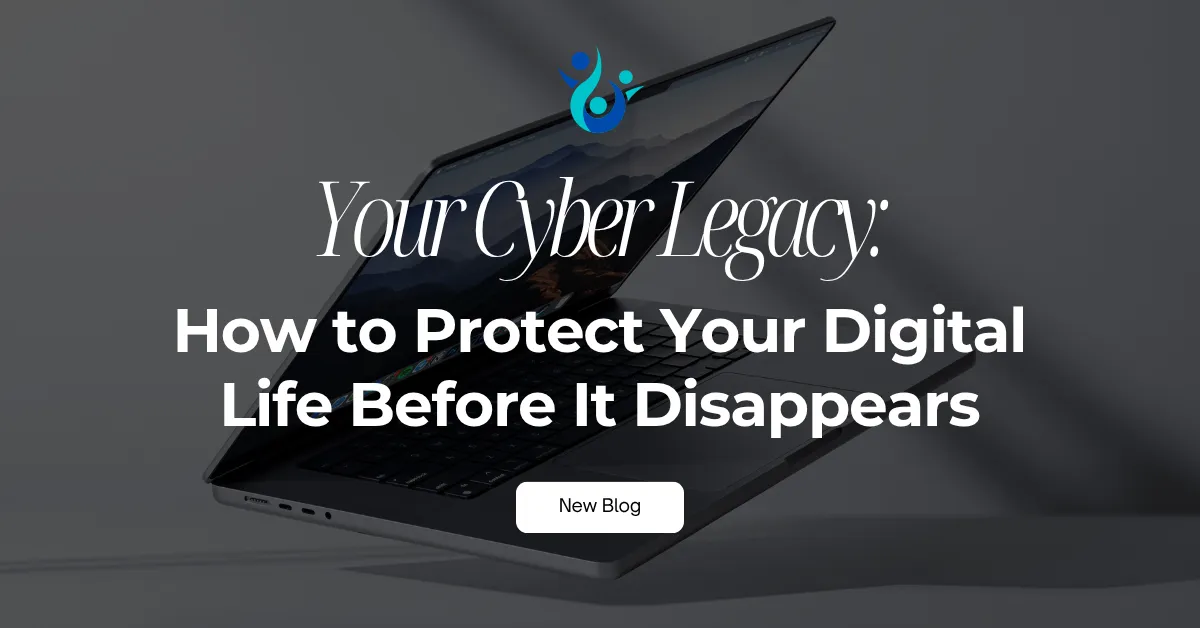
Your Cyber Legacy: How to Protect Your Digital Life Before It Disappears
If you’re like most Northern Kentucky families, you probably have thousands of photos, documents, and memories stored somewhere online. From Google Photos and iCloud backups to your Facebook page, online bank accounts, and maybe even a little cryptocurrency—your digital life holds real value.
But here’s the thing: if something happens to you, will your loved ones know how to find—or even access—any of it?
At Freedom Law Services, we see this issue all the time. Clients come in ready to update their wills or trusts and realize that no one else knows how to reach their online accounts. That means their family could lose access to not just family photos but also business records, financial accounts, or even ongoing income streams.
The truth is, your digital assets are now just as important as the home you live in or the accounts you keep. And without a plan, your digital legacy could disappear—locked behind passwords, encryption, or outdated privacy rules.
Let’s talk about how to protect it.
What Counts as a “Digital Asset”?
A lot more than you might think. Digital assets include:
Photos, videos, and documents stored on your phone, computer, or cloud storage
Social media accounts like Facebook, Instagram, LinkedIn, or TikTok
Email and online banking accounts
Cryptocurrency or NFTs
Domain names, websites, and blogs
Online stores (Etsy, Shopify) and affiliate accounts (Amazon, Google, ClickBank)
Monetized YouTube or content creator channels
Backups of your phone or computer
Cloud-based business files or databases
Some of these are sentimental—others have real financial value. For small business owners and entrepreneurs, digital assets might even represent a major share of their estate.
So, how do you make sure your loved ones aren’t locked out when they need access most?
3 Steps to Protect Your Digital Assets
1. Take Inventory
Start by making a list of every online account, subscription, and platform you use. That includes anything connected to money, memories, or business. You can use a password manager, spreadsheet, or secure document—whatever works best for you.
Be sure to note:
Where each account is held (Google, Apple, etc.)
How to access it (login instructions, 2-factor verification steps)
What’s important about it (personal, financial, business use)
This single document will be invaluable if someone needs to step in—whether it’s your spouse, a child, or the person you’ve named as your trustee or power of attorney.
2. Choose a Digital Fiduciary (Sometimes Called a “Cyber Successor”)
This is the person you trust to access, manage, and close your online accounts if you’re incapacitated or after your death. Under Kentucky’s version of the Revised Uniform Fiduciary Access to Digital Assets Act (RUFADAA), you can give legal permission for this person to handle your online life.
You can also use built-in tools many companies now offer—like Google’s Inactive Account Manager or Apple’s Digital Legacy feature—to name a trusted contact directly. These steps help your digital fiduciary act quickly and legally when the time comes.
3. Work with an Estate Planning Attorney Who Understands Digital Assets
Not every estate plan covers digital property. A well-drafted Life & Legacy Plan should include:
Instructions for how to access or transfer your online accounts
Powers of attorney that allow your chosen person to manage digital property
Provisions for online business continuity, if applicable
Because this area of law is still evolving, it’s important to have your plan reviewed regularly—especially if you’ve added new accounts, started a business, or invested in crypto or other digital property.
At Freedom Law Services, we help Northern Kentucky and Greater Cincinnati families create plans that protect not only their physical property but also the growing part of their lives that lives online.
The Cost of Doing Nothing
Losing access to family photos is heartbreaking. Losing control of your online business, domain names, or financial accounts could be devastating. We’ve seen families go through months of frustration—sometimes even court orders—just to recover accounts that could have been protected with a few simple steps.
Don’t let your digital legacy disappear into cyberspace. Make a plan now so your loved ones aren’t left guessing later.
Let’s Protect Your Life—Online and Off
Book a free 15-minute Discovery Call with Freedom Law Services today in our Crestview Hills, KY office. Together, we’ll create a Life & Legacy Plan that protects your time, your money, and—most importantly—your family.
📞 Call (859) 344-6742 or visit www.FreedomLawServices.com/call-today to schedule your discovery call.
This article is a service of Freedom Law Services. We don’t just draft documents; we ensure you make informed, empowered decisions about life and death for yourself and the people you love. That’s why we offer a Family Wealth Planning Session™. During the session, you’ll get more financially organized than ever before and make all the best choices for the people you love.
This material was created for educational and informational purposes only and is not intended as ERISA, tax, legal, or investment advice. If you seek legal advice specific to your needs, such advice services must be obtained independently, separate from this educational material.
